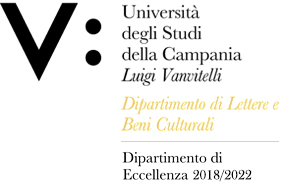Marcello LUPI
Insegnamento di STORIA GRECA:ECONOMIA, SOCIETA' E ISTITUZIONI
Corso di laurea magistrale in FILOLOGIA CLASSICA E MODERNA
SSD: L-ANT/02
CFU: 6,00
ORE PER UNITÀ DIDATTICA: 30,00
Periodo di Erogazione: Secondo Semestre
Italiano
| Lingua di insegnamento | Italiano. |
| Contenuti | L’insegnamento intende approfondire gli aspetti economici, sociali e istituzionali della storia greca, soprattutto attraverso l’analisi di un tema monografico. Il tema scelto per l’anno accademico 2021-22 è il seguente: etnicità e strutture politiche federali in Beozia. |
| Testi di riferimento | (a) C. Bearzot, “Il federalismo greco", Il Mulino, Bologna 2014. |
| Obiettivi formativi | L'insegnamento, coerentemente con i descrittori di Dublino, si propone di far acquisire agli studenti conoscenze avanzate della disciplina e la capacità di applicare le conoscenze acquisite. In particolare, gli studenti dovranno acquisire: la piena padronanza degli aspetti economici, sociali e istituzionali della storia greca; la capacità di utilizzare correttamente i documenti ai fini della ricostruzione storica, sapendo operare gli opportuni collegamenti fra essi; la capacità di esporre quanto appreso in una forma corretta ed organica, utilizzando il lessico specifico della disciplina; la capacità di argomentare in forma autonoma e corretta. |
| Prerequisiti | Conoscenze di storia, di storiografia e di epigrafia greca acquisite durante il corso di laurea triennale. |
| Metodologie didattiche | Lezioni frontali; lavoro seminariale; eventuale partecipazione a seminari o conferenze. |
| Metodi di valutazione | La verifica dell’apprendimento avverrà attraverso un esame orale, la cui valutazione terrà conto del livello delle conoscenze specifiche del candidato, della coerenza delle risposte, della correttezza linguistica. Il voto finale sarà calcolato nel seguente modo: |
| Altre informazioni | Il materiale didattico (fonti antiche e bibliografia moderna) relativo al tema monografico del corso sarà reso disponibile online entro il termine del corso attraverso il link “Materiale didattico” presente nella pagina web del docente sul sito del Dipartimento. |
English
| Teaching language | Italian. |
| Contents | The course aims at deepening the institutional, economic and social features of Greek history, mainly through the analysis of a monographic theme; the theme chosen for the academic year 2022-22 is the following: ethnicity and federal polities in Boiotia. |
| Textbook and course materials | (a) C. Bearzot, “Il federalismo greco", Il Mulino, Bologna 2014. |
| Course objectives | The course, coherently with the Dublin descriptors, aims to provide students with advanced knowledge of the subject and the ability to apply the acquired knowledge. In particular, students will have to acquire: the full mastery of the economic, social and institutional features of the Greek history; the ability to correctly use documents for historical reconstruction purposes, knowing how to make the appropriate connections among them; the ability to expose what has been learned in a correct and coherent form, using the specific vocabulary of the subject; the ability to argue autonomously and correctly. |
| Prerequisites | Knowledge of Greek history, historiography and epigraphy acquired during the three-year degree course. |
| Teaching methods | Lectures; seminar work; possible participation in workshop or conferences. |
| Evaluation methods | The assessment will take place through an oral exam, whose evaluation takes into account the level of the student's specific knowledge, the coherence of the answers and the linguistic correctness. The final grade is assigned according to a numerical scale and considers the following criteria: |
| Other information | Digital materials (ancient sources and modern bibliography) related to the monographic theme of the course will be made available online by the end of the course itself through the link "Materiale digitale" on the teacher's webpage located within the Department website. |








